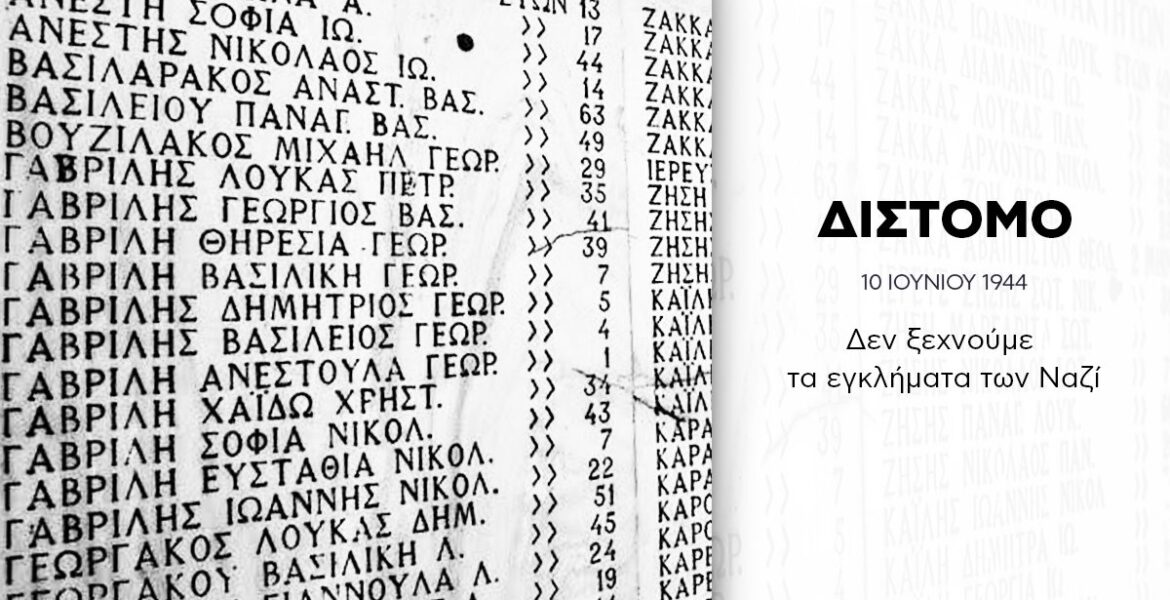Greek Foreign Minister Nikos Dendias posted on social media about German reparations on the occasion of the Nazi massacre of Distomo in 1944.
According to him, Greece "has never given up" on the payment of compensation by the German state.
He went on to say that the reparations from Berlin "could be a practical apology for the crimes of the German occupation troops in our country."

Such a development, according to him, "will contribute to the preservation of historical memory, for the benefit of both peoples."
Η καταβολή των αποζημιώσεων, από τις οποίες η Ελλάδα ουδέποτε έχει παραιτηθεί, μπορεί να αποτελέσει την έμπρακτη συγγνώμη για τα εγκλήματα των γερμανικών στρατευμάτων κατοχής στη χώρα μας. Θα συμβάλλει στη διατήρηση της ιστορικής μνήμης, επ’ ωφελεία και των δύο λαών. (2/2)
— Nikos Dendias (@NikosDendias) June 10, 2021
During the occupation of Greece by the Nazi Germans during World War II, they not only looted the country of all its physical wealth but committed numerous war crimes and massacres of the Greek population throughout the country.
The cost of the damage caused by Nazi Germany in Greece during the war has been estimated at €289 billion ($339 billion) by a Greek parliamentary commission. That amount includes a loan that Greece was forced to grant the German central bank.
Under the occupation of Nazi Germany, 300,000 Greek nationals were killed from April 1941 to September 1944. The Nazis committed numerous massacres in parts of the country, including Lyngiades, Distomo, Kalavryta, Kandanos or Viannos.
After suffering a defeat to the Greeks at Katavothra, leaving 15 German soldiers dead and as many wounded, the Germans took revenge on the innocent residents of Distomo.
Ordered by German Lieutenant Hans Zambel, Distomo was set upon and set on fire.
Regarded as one of the most heinous crimes committed by the Nazis in occupied Greece, 228 residents (114 women and 104 men, 53 of those were children were executed inhumanely in the Greek town of Distomo on June 10, 1944.
According to survivors, SS forces “bayoneted babies in their cribs, stabbed pregnant women, and beheaded the village priest.”
In August 1949, he confessed to the extent of the German atrocities in Distomo.
A film about the tragic massacre, titled ‘A Song For Argyrishas’, has since been made and follows the perspective of four-year-old survivor Argyris Sfountouris.
READ MORE: Greece Short-lists at least 6 Offers for Navy Frigate Program.

